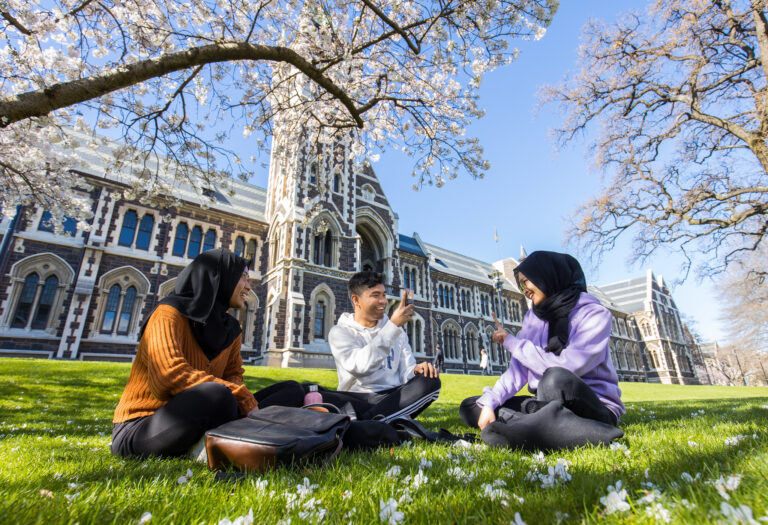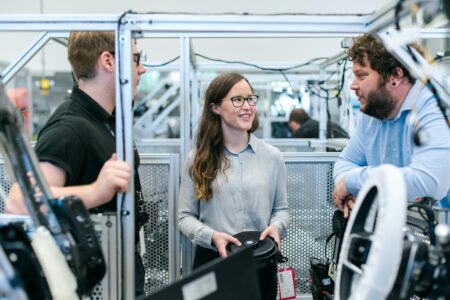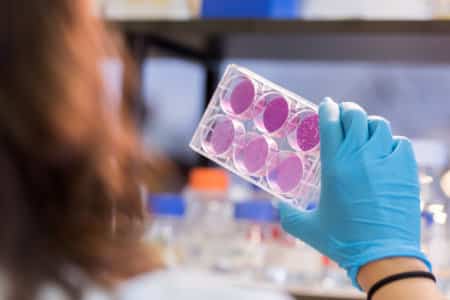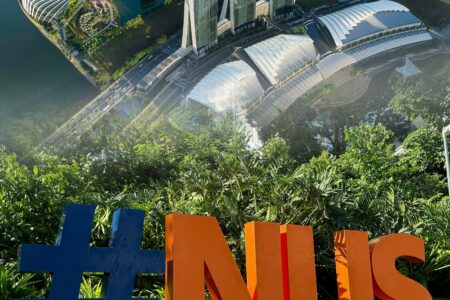
Imagine a world without vaccines, life-saving cancer therapies, or even reliable diagnostic tools. Biomedical science is the engine behind these advances, shaping how we understand, prevent, and treat diseases. In recent years, its impact has been undeniable. Take, for instance, the development of mRNA vaccines, a groundbreaking innovation that played a pivotal role in curbing the COVID-19 pandemic and is now being explored for combating other illnesses, such as HIV and certain cancers. Or consider CRISPR gene-editing technology, which has allowed scientists to correct genetic disorders like sickle cell anemia, offering hope to millions.
These breakthroughs reiterate the vital role biomedical science plays in improving global health. Hence, by studying this field, you’ll dive into a dynamic discipline that combines curiosity-driven discovery with tangible societal benefits.
To unlock its full potential, choosing the right institution is key — one that offers exceptional research opportunities, world-class teaching, innovative degree programmes, and state-of-the-art facilities. Thankfully, four such institutions exist in the Asia-Pacific region.

The School of Biomedical Sciences offers BSc majors from five departments and six BBiomedSc majors. Source: University of Otago
University of Otago
Located in New Zealand’s scenic South Island, the School of Biomedical Sciences at the University of Otago is a hub for teaching and research excellence in biomedical and molecular sciences. In fact, its Anatomy and Physiology departments rank among the world’s best, proudly standing at #30 in the 2024 QS rankings. As a whole, the school is known for offering comprehensive curricula through an extensive range of academic programmes.
Options include a Bachelor of Science with majors and minors in Anatomy, Biochemistry, Microbiology & Immunology, Pharmacology and Toxicology, and Physiology, or two dedicated programmes in Neuroscience and Genetics. The Bachelor of Biomedical Science (BBiomedSc) offers six unique cross-disciplinary majors. These pathways will thoroughly prepare you for your next academic step — be it in research-based programmes or professional health degrees in Dentistry, Medicine, or Pharmacy.
Classes are led by distinguished faculty engaged in cutting-edge research. For example, Dr. Htin Lin Aung delves into Antimicrobial resistance and Tuberculosis, while Dr. Rosie Brown advances our understanding of hormones and maternal behaviour as part of the Centre for Neuroendocrinology. Dr. Alana Alexander and Dr. Nathan Kenny work in molecular ecology and genomics, focusing on environmental health and impacts of climate change. Dr. Indranil Basak and Professor Michelle Glass focus on neurodegenerative conditions from two very different yet complimentary perspectives. The best part? No matter your study level, you can join them in pushing the boundaries of knowledge.
Beyond academics, residential life will bring you closer to New Zealand’s incredible landscapes. In Dunedin, you can spend your weekend surfing the waves at St. Clair Beach, hiking up Signal Hill for panoramic views over the city, or exploring the wildlife on the Otago Peninsula — home to rare albatross, penguins, and sea lion colonies.
Get the best of both worlds at the University of Otago.

The School of Biomedical Sciences at the Chinese University of Hong Kong follows three Thematic Research Programmes. Source: Chinese University of Hong Kong
Chinese University of Hong Kong
The School of Biomedical Sciences at the Chinese University of Hong Kong places great importance on quality teaching and its learning environment, especially in its three Thematic Research Programmes. One is Cancer Biology and Experimental Therapeutics, where you find effective cancer treatments by understanding the basic mechanisms of tumour initiation and progression. Another is Developmental and Regenerative Biology, where you will cover research on development and diseases, stem cells and tissue engineering, genomics, genetics, and epigenetics. Lastly, research on Neural, Vascular, and Metabolic Biology focuses on neurophysiology, neurodevelopment, neurodegenerative diseases, cardiovascular function, metabolic diseases, and cellular signalling.
The school offers a BSc in Biomedical Sciences where you will learn everything there is to know about clinical, pharmaceutical, and healthcare settings. On this route, you will explore modern medical trends to treat diseases and find new solutions to address global health demands. In addition to the school’s leading scientists, this programme is also delivered by guest speakers and industry experts who share their experiences and views on how biomedical advances the medical field.
All lessons are delivered from the Chinese University of Hong Kong’s campus, which is nestled among the greeneries of Sha Tin, Hong Kong. This pedestrian-friendly campus is perfect for those looking to balance out the rigours of an impactful education with hiking, cycling, or taking long, leisurely walks.

The School of Biomedical Sciences at the University of Melbourne offers 14 specialisations. Source: University of Melbourne
University of Melbourne
The School of Biomedical Sciences at the University of Melbourne has 85 research groups across three departments with a common objective: to advance human health in Australia and beyond. Here, researchers with expertise in infection and immunity, neuroscience, metabolic health, and development and differentiation work together with you to cover themes like cell signalling, biomedical neuroscience, scholarship of teaching and learning, and many more.
Here, you will learn practically through research and theoretically through classroom lessons, exploring everything from cardiovascular and central nervous systems to neuropathology and haematology. No matter which one of the 14 areas of specialisation you choose, you will surely receive the knowledge and techniques needed for a fruitful career. Pathways include Biochemistry and Molecular Biology, Biomedical Engineering Systems, Biotechnology, Cell and Developmental Biology, Genetics, Human Nutrition, Human Structure and Function, Immunology, Infection and Immunity, Microbiology, Neuroscience, Pathology, Pharmacology, and Physiology.
Lessons await beyond campus, too. The School of Biomedical Sciences is at the heart of a global hub of world-leading research institutes and health services. But if you would like to take a break from work, there are libraries, museums, and galleries around Parkville — where the campus is located. From the Ian Potter Museum of Art to the new Science Gallery Melbourne, Australia’s rich culture and history remain just minutes away.

The School of Biological Sciences at Nanyang Technological University has over 20 years of experience addressing humanity’s biggest challenges. Source: Nanyang Technological University
Nanyang Technological University
Nanyang Technological University‘s School of Biological Sciences believes discoveries in molecular biology will become the next big technological revolution after the internet. This is why the school maintains its position at the forefront of research, collaborating with various local and international institutes, universities, and hospitals to advance basic knowledge and translational application in biological and biomedical sciences. It specifically focuses on research in Biological Data Science, Cancer and Cell Biology, Gene, Genetics and Genomics, Microbiology and Immunology, Neuroscience, Plant Biology, Proteomics and Protein, Structural Biology and Drug Discovery, and Traditional Chinese Medicine.
With joint degree programmes in Biomaterials, Psychology, Food Science and Technology, and Biomedical Structural Biology, the school offers curricula that encapsulate everything related to biomedical sciences and its advancements for the world’s future. There are seven bachelor’s degrees you can enrol in — all of which are taught by a diverse international faculty from over 20 countries.
Beyond academics, Nanyang Technological University provides an inspiring environment that complements its rigorous education. Ranked among the world’s top 15 most beautiful campuses, it’s a visual treat with a blend of natural and man-made art installations dotting its grounds. Add to this a vibrant calendar of cultural, social, intellectual, sporting, and recreational activities, and you have a campus experience that’s as enriching outside the classroom as it is within.
*Some of the institutions featured in this article are commercial partners of Study International










